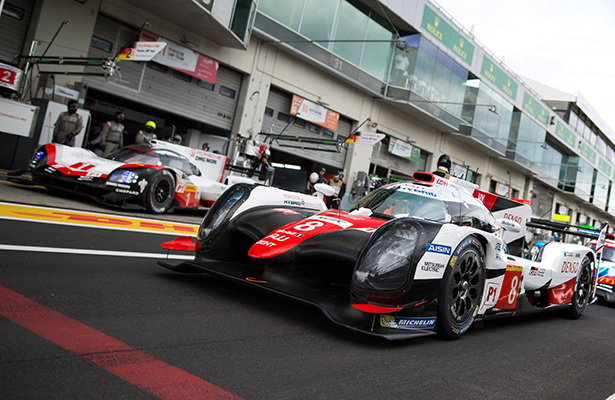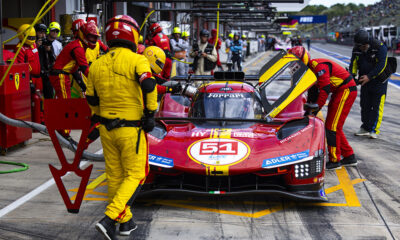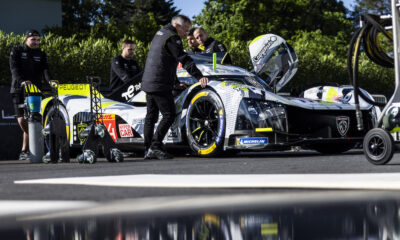
Photo: Toyota
ACO Sporting Director Vincent Beaumesnil has hit out at claims that the current LMP1 hybrids are too complex, in the wake of last month’s attrition-filled 24 Hours of Le Mans.
All five LMP1 hybrids ran into trouble over the course of the French endurance classic, handing the overall race lead to a LMP2 car for several hours, until a recovery drive by the No. 2 Porsche 919 Hybrid delivered the German manufacturer overall victory by one lap.
Beaumesnil noted that only two of the cars had hybrid-related issues, with both the winning Porsche and No. 8 Toyota TS050 Hybrid suffering front motor generator unit failures.
“I’m not very happy to hear that these cars had some issues because they are too complex. I think this is clearly not true,” Beaumesnil told Sportscar365.
“There were five cars, and all the cars had an issue. Only two were about the hybrid system and it was really not due to the complexity of the system.
“It was typical Le Mans. Whenever you run in any class, you can have an issue that has a big consequence.
“This happened to [these cars] but not due to the complexity of the cars, to be clear.”
Toyota Gazoo Racing technical director Pascal Vasselon, who saw only one of his three cars take the checkered flag at Le Mans, said there were a series of “exceptional circumstances” that attributed to the unusually high rate of attrition.
Contact with a GT car, which damaged the gearbox and caused a puncture, knocked the No. 9 Toyota of Nico Lapierre out of the race, while a bizarre pit lane incident, triggered by driver Vincent Capillaire, who was mistaken for a marshal, resulted in clutch failure for Kamui Kobayashi’s pole-sitting No. 7 car.
Vasselon said they’ve had only two hybrid-related failures since the Japanese manufacturer’s WEC debut in 2012, and both were quality control-related issues.
“It’s more about quality issues than fundamental problems,” he said. “Porsche have had the nearly same issue with the front motor with a part that never caused any problem [in the past].
“It is important to analyze a bit because otherwise you can conclude that hybrid cars are not reliable. No, absolutely not.
“In six years, we have shown a level of reliability which is comparable or even better than conventional cars before. We cannot judge hybrid cars from this Le Mans.”
Vasselon revealed that Toyota Motor Corporation President Akio Toyoda’s comments, provided in a post-race statement by the team, which indicated that hybrid cars are “not yet ready” for Le Mans, was incorrectly translated.
It’s believed Toyoda’s statement had fueled others to share similar views on the situation.
“We found out the translation was wrong,” Vasselon said. “We were amazed. We had a look at the Japanese text and it was different.”
Despite the unusual race, Beaumesnil believes there are still positives to take away, with his hope that it will attract new LMP1 non-hybrid cars to the class, which currently faces uncertainty for the future.
“I am not happy with what happened but it wrote history at Le Mans, and so many people realized that they can do something with an LMP1 Privateer car,” he said.
“Everything can happen at Le Mans. You can be more predictable in six hours but even here, we have surprises everywhere.
“But if you multiply it by four times, the possibility to have something unexpected. This is what makes this race very special.”
All four LMP1 hybrids completed last weekend’s Six Hours of Nürburgring without any hybrid-related issues, with the No. 8 Toyota the only car to spend time in the garage altogether, due to a broken fuel pump.























